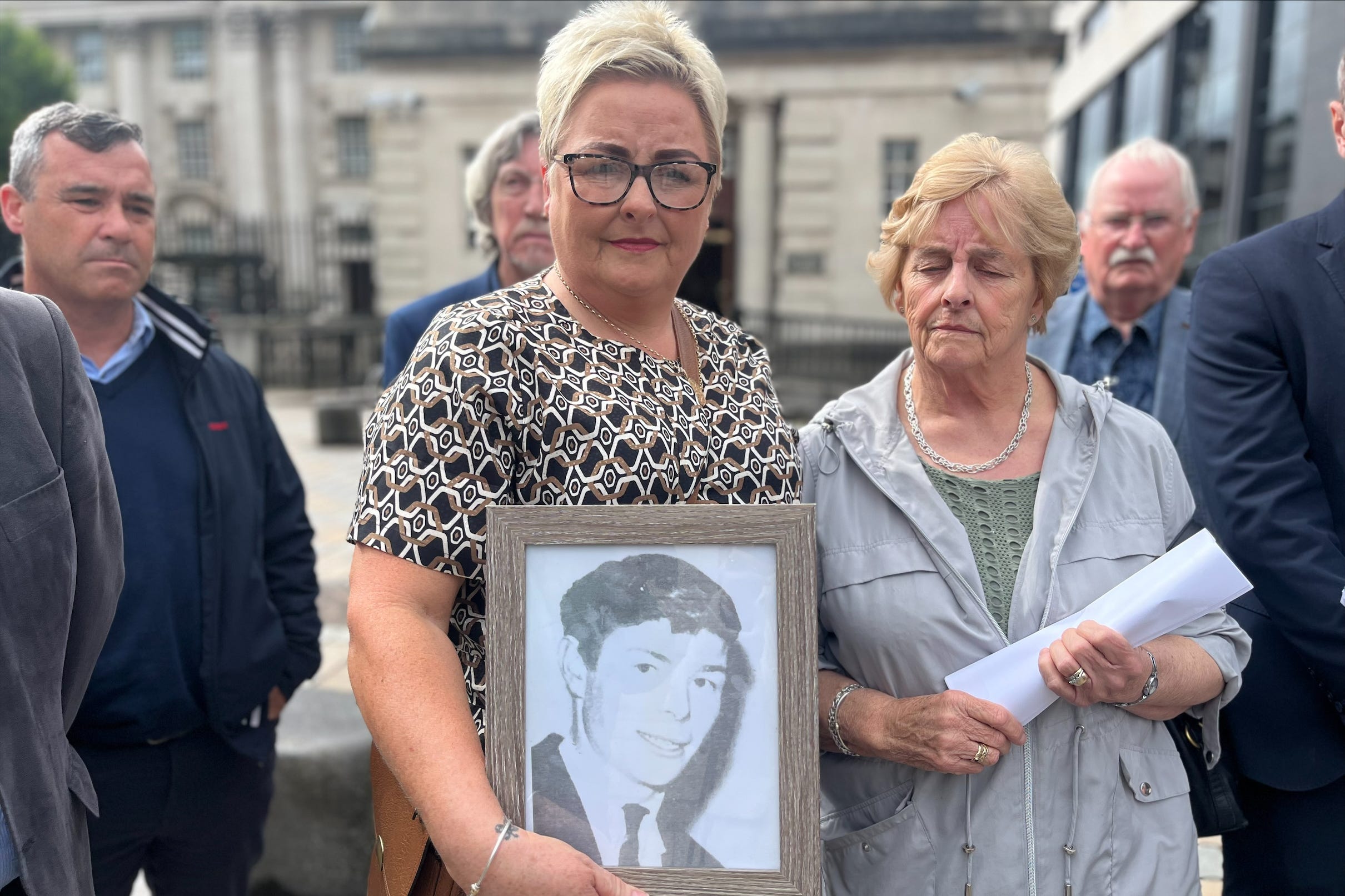Fresh inquest ordered into the deaths of three men in Newry in 1971
Former British soldier Robert Anderson along with Sean Ruddy and Thomas McLaughlin were shot by soldiers in October 1971.

A fresh inquest has been ordered into the deaths of three Catholic men who were shot in an incident involving British soldiers 52 years ago.
Former Royal Signals soldier Robert Anderson, 25, along with Sean Ruddy, 19, and Thomas McLaughlin, 27, were shot on Hill Street in Newry on October 23 1971 as they made their way home from a bar.
It was claimed at the time the men had been attempting to steal cash being dropped off at a night safe.
Mr Anderson’s family are adamant he was not involved in the attempted robbery and have vowed to clear his name.
The family say they have been campaigning for answers for decades, and were previously refused a fresh inquest into the deaths.
This week Northern Ireland’s Attorney General Dame Brenda King ordered a fresh inquest into the deaths.
A proposed British government Legacy Bill would see all inquests halted and handed over to a new body.
The Bill is in it’s final stages of the Parliamentary process.
The Anderson family has vowed to take legal action if their inquest does not proceed in the Coroners Court.
Speaking in Belfast on Friday, Mr Anderson’s niece Michelle Osborne said the family were feeling a lot of emotions.
“It’s very emotional for us today. We’re angry, we’re bitter, it has taken 52 years to get here,” she said.
“We all got on with our lives, but Robert didn’t get to go on with his life.
“Robert was… the same age as my daughter is now, and she has her whole life in front of her.
“It has been very raw for the last two years since we first applied for a new inquest but thankfully we’re here today.”
Ms Osborne said she hopes the inquest will see the soldiers involved have to face questions.
“I would be very realistic, I know it has taken us 52 years to get here and we’re on a time crunch (due to the Legacy Bill), if the Bill doesn’t pass, we’re good to go, if it does, then we’ll go to court,” she said.
The family’s solicitor Gavin Booth, of Phoenix Law, said the inquest is a “welcome step in the battle for justice”.
“These men were totally innocent.
“They were not linked to any organisation, nor were they involved in any criminality.
“They were simply making their way home from a bar,” he said.
“The Attorney General for Northern Ireland found there were clear deficiencies in the previous investigation.”
In terms of the Legacy Bill, Mr Booth said: “It is still not law.
“Mr Justice Humphreys said last week in the inquest reviews that at this time the courts will continue to do business.
“We are minded to keep going with these inquests.
“We think that if the PSNI and MoD properly resourced the inquest process, and properly provided disclosure, the outstanding inquests can and should happen.
“We believe that this inquest can happen.
“It’s a single incident in Newry in 1971.
“The documents will be there in the PSNI and MoD stores and they should quickly engage with this process.
“Should the Bill come into force, we will not stop until we get this inquest.
“The families have a right to have access to court.”